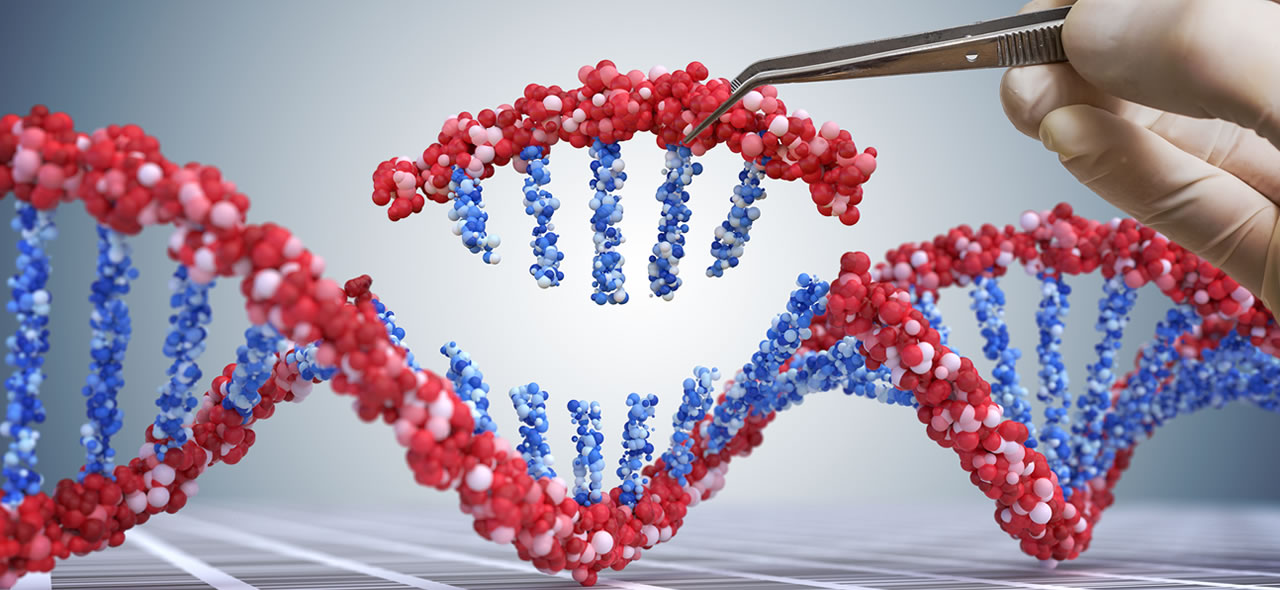
Scientists have long known that a person's DNA determines to a great extent what if any diseases he or she will suffer in life. Until recently, science had few if any ways to target human DNA in order to cure or prevent genetic illnesses. Now, however, modern science has given way to trials that could soon unlock the key to preventing or halting a variety of illnesses that are disabling or fatal in humans.
The scientific trials being conducted in the U.S., Europe, and elsewhere primarily focus on the role of what is known as CRISPR DNA. CRISPR is an acronym that stands for Clustered Regularly Interspaced Short Palindromic Repeats. CRISPR DNA was originally identified as a defense system that destroys foreign DNA that invades bacteria.
However, science has recently discovered that it is also capable of altering and editing DNA in biological specimens including humans. Scientists speculate that CRISPR DNA could soon be used to alter genetic sequences in people to not only improve a person's overall wellness but also halt or treat diseases, improve the quantity and quality of the earth's food supplies, and curb or eliminate environmental pollution.
In fact, CRISPR DNA has already been used to halt the onset of diseases in trial subjects like dogs. Dogs are actually the largest specimens used in CRISPR DNA trials to date.
However, as fruitful as the trials have been, scientists have also identified concerns that they warn could compromise the integrity and promise of using CRISPR DNA in disease prevention or cures. Primarily, they note that CRISPR has demonstrated an ability to harm DNA that is located far from the targeted DNA that scientists are trying to alter or correct.
This potential for damage does not necessarily rule out using CRISPR in the future. However, it does suggest that scientists and eventually doctors will need to take extra precautions before implementing the use of CRISPR DNA in human patients.
Scientists have been experimenting with altering or editing human DNA for several decades now. The most recent trials have taken place in countries like the U.S., U.K., and Japan. In the U.S., scientists have been experimenting with altering human DNA to cure diseases like sickle cell anemia.
This form of anemia is particularly deadly and can require a person to undergo blood transfusions for the rest of his or her life. The DNA trials involve extracting stem cells from the patient's body. The stem cells' DNA is then manipulated to target the disease before being transplanted back into the patient's body. Scientists expect the stem cells to produce normal blood cells that will either minimize or halt the disease entirely.
A similar DNA trial is currently underway in Europe involving the manipulation of DNA to cure beta-thalassemia, which is another severe form of DNA. If successful, the trial could pave the way for future treatments for this disease. Patients would no longer require costly and painful blood transfusions.
CRISPR DNA trials are not without their controversy, however. In Japan, trials are underway to manipulate actual human embryos. While some countries outlaw the manipulation of human embryos for any purpose, Japan has remained essentially neutral on the subject.
The scientific studies underway are trying to determine if human embryos can be manipulated and changed in order to prevent the onset of genetic diseases. If successful, the trials could lead to doctors using the science to cure diseases even before a person is born. Some ethicists worry, however, that the science will result in human embryos being manipulated and altered for non-medical purposes, a practice that is outlawed in most countries today.
DNA holds the road map for how a person's future health may turn out once he or she is born. Scientists theorize that changing or manipulating DNA can prevent the onset of or cure certain genetic illnesses. Scientific trials continue to pursue this idea and could possibly lead to fatal and disabling illnesses being entirely halted or prevented.